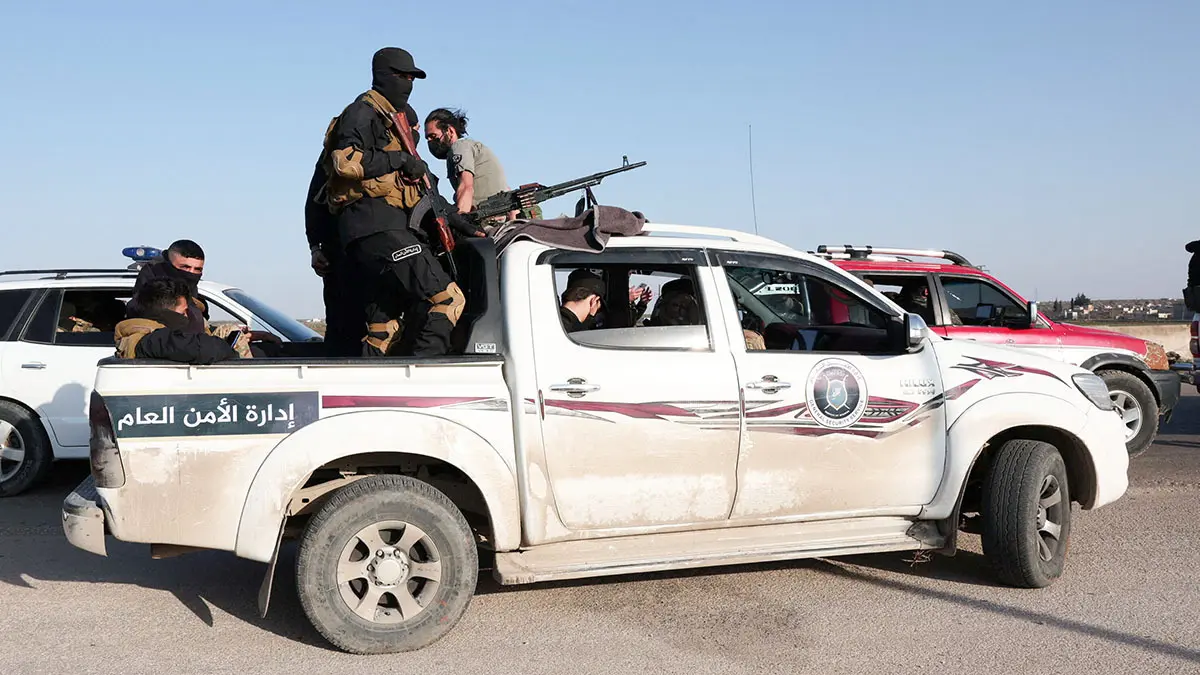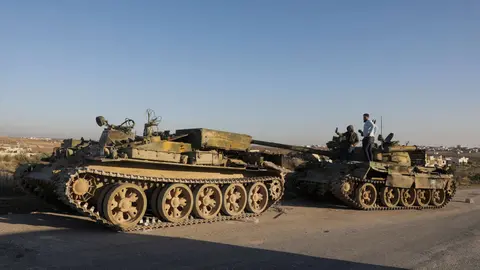New conflicts in the Druze region challenge Damascus' ability to manage sectarian conflict

On Tuesday, more than a dozen people were killed in a predominantly Druze town near the Syrian capital, posing a new challenge to the Islamist authorities' ability to control sectarian conflict in the diverse country.
The wave of sectarian violence was sparked by an alleged recording of a Druze man cursing the Prophet Muhammad.
The clashes in Jaramana are the latest test for the Islamist authorities, who have roots in the al-Qaeda jihadist group but have promised an inclusive government in this multi-faith and multi-ethnic country.
The authorities have been trying to persuade Western capitals that the jihadist origins of the forces that toppled Assad are confined to the past and that the crippling international sanctions should be lifted.
Fears among minorities have been growing in Syria since rebels led by radical Islamists ousted former leader Bashar al-Assad from power in December, installing their own government and security forces.
Those fears increased after the killing of hundreds of Alawites in March, in apparent revenge for an attack by Assad loyalists.
While seeking to present a more moderate image to the world, the new authorities have been ambivalent about imposing strict control over the activities of former jihadists within their ranks.
The clashes began overnight when armed men from the nearby town of Maliha and other predominantly Sunni areas converged on the mostly Druze town of Jaramana, southeast of Damascus, security sources said.
According to the Syrian Observatory for Human Rights, 14 people, including seven Druze fighters, were killed in sectarian clashes that made Jaramana residents fear a repeat of last month's sectarian bloodshed on Syria's coast.
Local sources and the Observatory said fighters from outside Jaramana attacked the district.
‘Heavy clashes erupted in Jaramana after security forces and affiliated gunmen stormed’ areas of the mostly Druze and Christian suburb of Jaramana, the Syrian Observatory for Human Rights said.
The violence was sparked by “the circulation of an audio recording, attributed to a Druze citizen, containing religious insults,” it added.
According to Interior Ministry spokesman Mustafa al-Abdo, among the dead were two members of the Syrian General Security Service, a new security force composed mostly of former rebels.
Abdo denied that armed men had attacked the town and claimed that, instead, groups of civilians angered by the voice recording had organised a protest that was attacked by Druze groups.
The Interior Ministry said in a statement that it was investigating the origin of the voice recording and called for calm, urging citizens not to let emotions lead to violence or damage to public property.
Druze elders met with security forces to try to prevent further escalation, according to a Syrian security source. ‘What some individuals said against our Prophet represents only them and is rejected by us and by the whole society,’ Druze religious leader Sheikh Yousef Jarbou said, urging both communities to reject attempts to stoke sectarian divisions.
Syrian government representatives and Druze community leaders in the city later agreed on Tuesday to hold those involved in the attack accountable, the Syrian state news agency Sana reported.
The war that ravaged Syria for nearly 14 years divided the country into several zones of influence, and the Druze, an Arab minority that practises a religion originally derived from Islam, took up arms to defend their own towns.
The new Islamist rulers in Damascus have called for all weapons to be placed under their authority, but Druze fighters have resisted, saying Damascus has not guaranteed their protection from hostile militants.
Community leaders blamed the government for failing to prevent Tuesday's attack and warned it would bear responsibility for any future repercussions.
Jaramana, a mostly Druze and Christian suburb in south-east Damascus, is also home to families displaced during the Syrian conflict, which erupted in 2011. According to unofficial estimates, the area is home to around one million people.
Residents expressed fears that the clashes could escalate after violence on the Syrian coast last month led to the killing of more than 1,700 civilians, mostly from the Alawite minority, according to the Observatory.
The Interior Ministry reported ‘intermittent clashes between groups of armed men’ and said security forces had been deployed ‘to break up the clashes and protect residents.’
‘We affirm our desire to pursue those involved and hold them accountable,’ it said in a statement.
‘We will not be lenient in bringing to justice anyone who contributes to sowing chaos and undermining security,’ the ministry statement added.
Druze religious leaders in Jaramana condemned in a statement ‘the unjustified armed attack’ that ‘targeted innocent civilians and terrorised’ residents.
‘We strongly condemn any insult against‘ the Prophet Muhammad, the statement said, calling the audio recording an attempt to ‘sow discord and division.’
It added that the Syrian authorities bore ‘full responsibility for the incident’ and any ‘worsening of the crisis.’
Prominent Druze leader Sheikh Hikmat al-Hajri condemned what he called ‘terrorist attacks’ and accused Syria's new rulers of wanting to marginalise the Druze, as the previous government had done.
Security forces were deployed in Jaramana last month after clashes between security forces and local gunmen tasked with protecting the area.
Israeli Defence Minister Israel Katz then warned the new Islamist-led authorities not to ‘harm the Druze minority’, which is also widespread in Lebanon and Israel.
Druze leaders rejected the Israeli warning and declared their loyalty to a united Syria.










